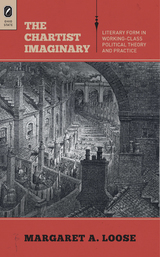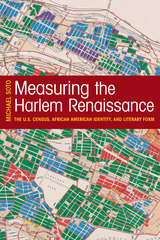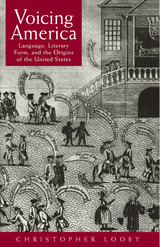
The Chartist Imaginary offers close readings of poems and fiction by Chartist figures from Ernest Jones and Thomas Cooper to W. J. Linton, Thomas Martin Wheeler, and Gerald Massey. It also draws on extensive archival research to examine, for the first time, working-class female Chartist poets Mary Hutton, E. L. E., and Elizabeth La Mont. Focusing on the literary form of these works, Loose strongly argues for the political power of the aesthetic in working-class literature.


Measuring the Harlem Renaissance sifts through a wide range of authors and ideas—from W. E. B. Du Bois, Rudolph Fisher, and Nella Larsen to Zora Neale Hurston, Langston Hughes, and Wallace Thurman, and from census history to the Great Migration—to provide a fresh take on late nineteenth—and twentieth—century literature and social thought. Soto reveals how Harlem came to be known as the "cultural capital of black America," and how these ideas left us with unforgettable fiction and poetry.

Since Friedrich Schleiermacher’s work in the 1800s, scholars interested in the literary dimension of Plato’s writings have sought to reconcile the dialogue form with the expository imperative of philosophical argument. It is now common for mainstream classicists and philosophers to attribute vital importance to literary form in Plato, which they often explain in terms of rhetorical devices serving didactic goals. This study brings the disciplines of literary and classical studies into methodological debate, questioning modern views of Plato’s dialogue form.
In the first part of this book, David Schur argues that the literary features of Plato’s dialogues—when treated as literary—cannot be limited to a single argumentative agenda. In the second part, he demonstrates the validity of this point by considering a rhetorical pattern of self-reflection that is prominent in the Republic. He emphasizes that Plato’s book consistently undermines the goal-driven conversation that it portrays. Offering a thought-provoking blend of methodological investigation and methodical close reading, Schur suggests that the Republic qualifies the authority of its conclusions by displaying a strong countercurrent of ongoing movement.

READERS
Browse our collection.
PUBLISHERS
See BiblioVault's publisher services.
STUDENT SERVICES
Files for college accessibility offices.
UChicago Accessibility Resources
home | accessibility | search | about | contact us
BiblioVault ® 2001 - 2024
The University of Chicago Press









